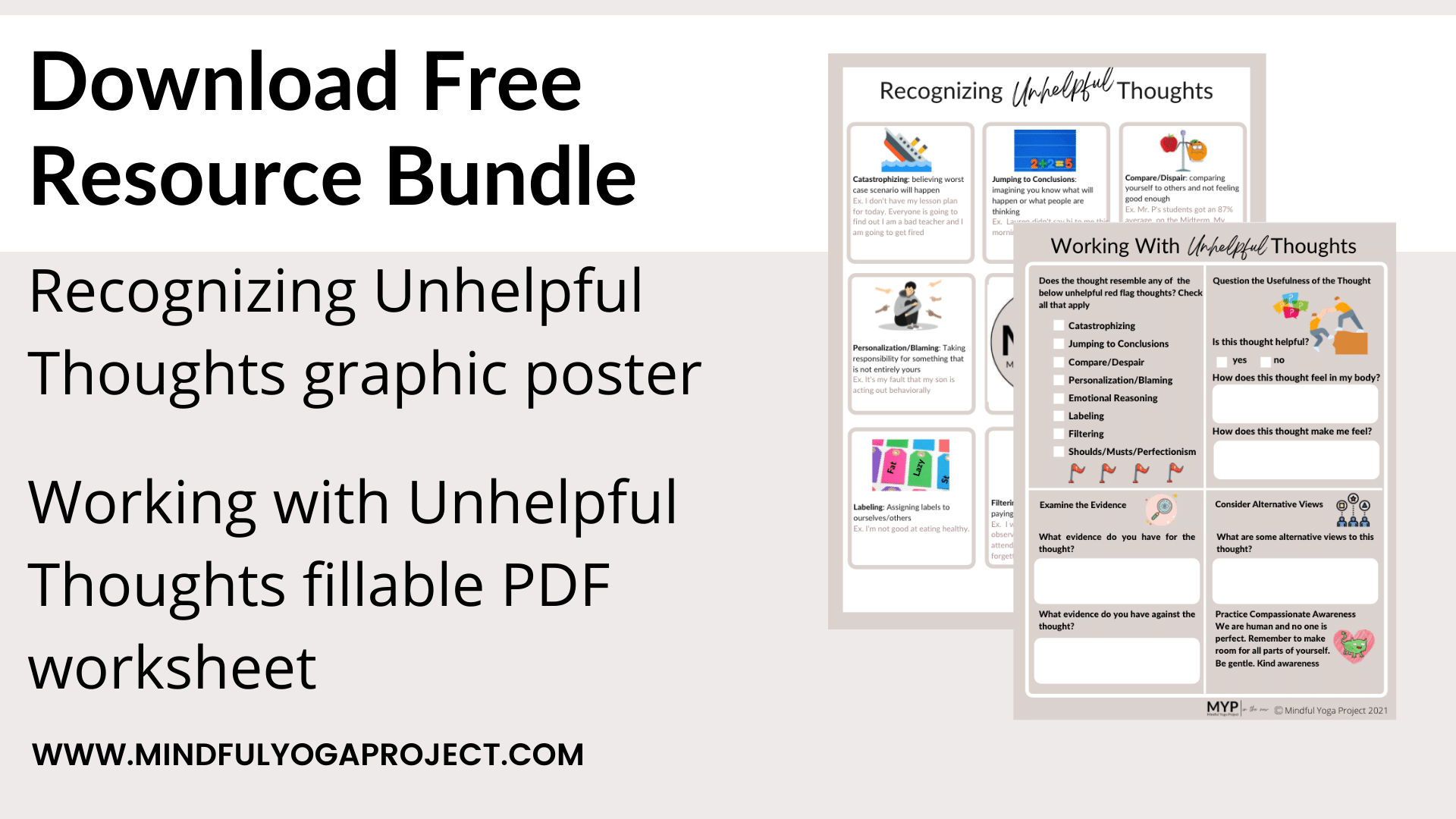|
Cognitive distortions or irrational beliefs are unhelpful thinking patterns about a situation circumstance or person.
Just as a funhouse mirror at a carnival distorts how we look, cognitive distortions warp how we perceive reality. It’s completely normal to experience cognitive distortions or irrational thoughts every now and then. Cognitive distortions only become a problem in life when we are not able to recognize and disengage from them. When we cannot disengage from unhelpful thoughts, we can start to experience anxiety, depression, relationships problems and self defeating behaviors In order to stay ahead of the curve, it’s a good idea to familiarize yourself with common cognitive distortions and ways to reframe them in productive ways. Keep reading to learn about some of the common cognitive distortions with examples and healthy ways to reframe your thoughts so that you can live your best life. 1. Perfectionism (Shoulds/Musts/Oughts)
Distortion: Believing everything must be a certain way, even when it may not be realistic. Feeling guilty or inadequate when you “break” a rule. Getting angry and frustrated when others break rules. Rigid thinking.
Example: I should have enough time and energy after work to spend time with my children. I feel guilty letting my kids watch tv while I finish up work grading papers and planning for tomorrow's lesson especially because I get angry when my husband puts the kids in front of the TV so he can finish up work. Reframe: I want to have enough time to spend time with my family after work but sometimes I am too busy or tired. I will try my best to spend quality time with them even if sometimes that means cuddling on the couch watching TV together while I finish up some work. On nights where I really can’t find time, I will give myself some grace. 2. All or Nothing Thinking
Distortion: Believing everything is either black or white without room for gray areas in between.
Example: If I am not nice, agreeable and bubbly all the time to my colleagues and students at school then I will be perceived as a jerk and bad teacher. Reframe: I’m allowed to have a voice, set boundaries, and be myself. Standing up for myself does not make me a jerk. 3. Compare/Despair
Distortion: Comparing yourself with others in a way that positions you as inadequate or not good enough.
Example: My colleagues are way better teachers than me. They always have fun and engaging lessons and are super organized. Their grade book is always updated and they have it together enough to do small group instruction during their lessons. I’m never going to be that good of a teacher. Reframe: My colleagues work really hard to be great teachers. They put in the hours to make sure that their lessons are engaging, their grade book is updated, and their plans are organized. If I put in the time, I can also achieve similar results. 4. Labeling:
Distortion: Labeling a person instead of objectively evaluating a mistake they made.
Example: Fran forgot to turn off all the lights downstairs and empty the dehumidifier before going to work. She is so irresponsible and lazy, I can’t count on her for anything. Reframe: Fran forgot to turn off all the lights downstairs and empty the dehumidifier before going to work. She probably had a rough morning. I sometimes forget to shut the lights when something else is on my mind. 5. Mind Reading:
Distortion: Assuming that someone is thinking/reacting negatively to you even though you cannot know what they are thinking.
Example: My friend didn't text me back. She must think I am too needy and annoying. Reframe: My friend didn't text me back. She may be busy or dealing with something in her life that I am unaware of. I sometimes do not respond to texts. 
Thank you!Please check your email to download content. 6. Emotional Reasoning
Distortion: Trusting that your emotions are facts.
Example: I am a total failure because I’ve been stuck in a job that I hate for ten years without the skills or work experience to change careers. Reframe: I have been unhappy in my job for ten years. Even though I feel like a failure I know that changing careers is achievable. I may have to go back to school for a few years to gain a new skill set while continuing to work in my current job. It will be hard work but it will be worth it when I am in a career that I love. 7. Catastrophizing
Distortion: Believing worst case scenario will occur.
Example: My alarm didn’t go off this morning and I was late to work. I am going to get fired. Reframe: My alarm didn’t go off this morning and I was late to work. I am not the only person who has ever made this mistake. I feel embarrassed and scared, but that’s part of being human. This is not the end of the world. Half the battle is recognizing and becoming aware of your thoughts. Mindfulness is an effective tool to do this. Mindfulness is not a quick fix- it's a slow and steady process with invaluable rewards. Looking for information on how to disengage from cognitive distortions? Check out this blog post: 4 Practical Strategies to Challenge Unhelpful Thoughts. Ready to take the first step in your mindfulness journey? Sign up for our FREE 7 day mindfulness course now. Join the FREE 7 Day Mindfulness ChallengeThank you!Please check your email to access content.
0 Comments
Leave a Reply. |
Hi, I'm AlyssaMindfulness, yoga, and herbal medicine have been fundamental to my own journey in life. I hope to share my experiences and perspectives in order to inspire and connect with others. Archives
January 2024
Categories
All
|
|
Herbs Love And Yoga
111 Church Hill Rd., Suite 1 Sandy Hook, CT 06482 |
(917) 267-8203
[email protected] |
Proudly powered by Weebly



 RSS Feed
RSS Feed

